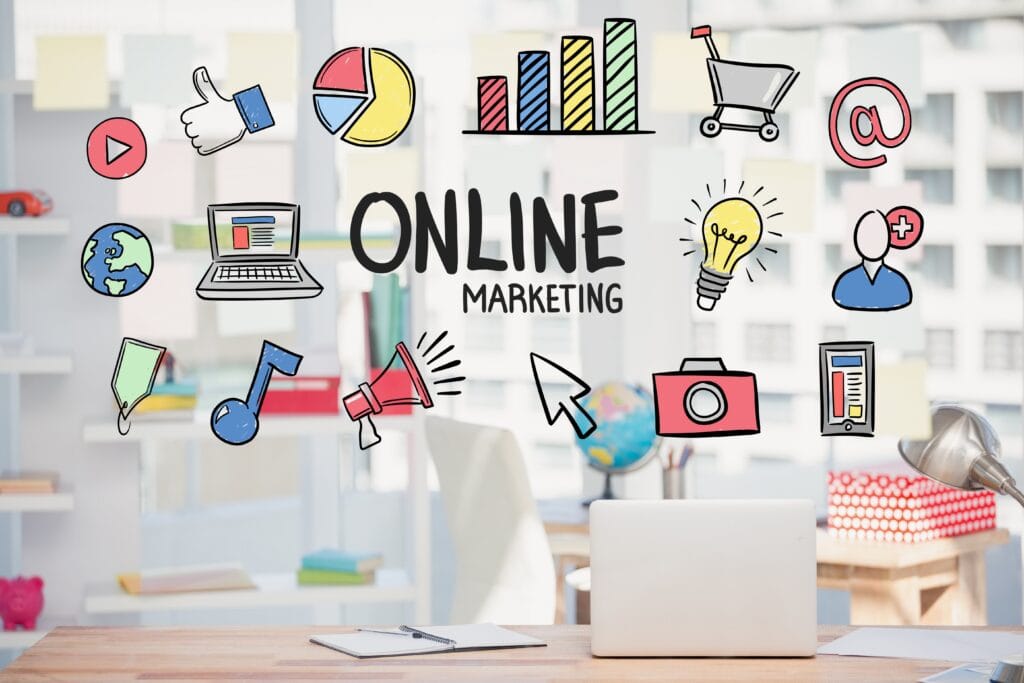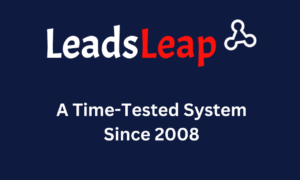Have you ever found yourself wondering how to effectively navigate the world of online marketing? Whether you’re setting sail on this vast digital sea for the first time or simply looking to sharpen your existing skills, understanding the fundamentals of online marketing is crucial. The digital landscape can seem daunting at first, but trust me, with the right guidance, it can become a remarkably rewarding journey.
Understanding Online Marketing
Before diving headlong into the depths of strategies and tactics, it’s essential for you to grasp the essence of online marketing. It essentially revolves around harnessing internet-based platforms to get your products or services in front of your target audience. In today’s hyper-connected world, traditional marketing simply cannot keep up; online marketing has become a pivotal component for businesses determined to thrive.
Why is Online Marketing Important?
To put it simply, online marketing is important because it aligns perfectly with how consumers make purchasing decisions today. Data shows that more and more of your potential customers are online, using search engines, social media, and e-commerce platforms to make informed purchasing decisions. By establishing a strong online presence, you get to meet your audience where they are.
Essential Elements of Online Marketing
To steer your online marketing ship successfully, you need to understand its core components. These are like your map and compass, guiding your way through the digital marketing landscape.
Search Engine Optimization (SEO)
Imagine your website as a delightful boutique nestled on a busy street. SEO is like the sign that directs foot traffic to your store. Without it, you’re just another invisible shop on the block. By optimizing your website for search engines, you enhance its visibility, making it easier for prospective customers to find you. Keywords, content quality, and backlinks are some key factors influencing SEO.
Content Marketing
At the heart of most successful online marketing campaigns is great content. This isn’t just about blogging; it involves creating valuable, relevant content that attracts, informs, and retains your audience. From blog posts to videos, and infographics to e-books, content marketing aims to establish you as a thought leader while nurturing customer trust.
Social Media Marketing
Social media platforms offer an invaluable opportunity for you to interact with your audience casually and effectively. By embracing platforms such as Facebook, Instagram, Twitter, or LinkedIn, you can engage in meaningful dialogue with your followers, building brand loyalty along the way. Social media also serves as an excellent broadcasting tool for your content and promotions.
Pay-Per-Click (PPC)
Think of PPC as a way to buy visits to your site rather than earning them organically. Every time a user clicks your ad, a nominal fee is charged. However, these clicks can be a significant source of leads and revenue if executed effectively. Google Ads and Facebook Ads are noteworthy platforms that offer PPC services.
Email Marketing
Don’t underestimate the power of email. It’s not just one of the oldest forms of digital communication but also a highly effective marketing tool. By creating personalized and value-driven emails, you can nurture relationships with your audience, promote your content, and ultimately drive conversions.
Creating an Effective Online Marketing Strategy
Crafting a successful online marketing strategy is much like assembling a puzzle. Each piece must fit perfectly into the whole to create a cohesive picture. Follow these steps to start piecing together your strategy:
Understand Your Audience
Before creating any marketing campaign, it’s crucial to know who you’re talking to. Understand your audience’s interests, needs, and behaviors. You might even consider creating personas—semi-fictional representations of your ideal customers based on real data.
Set Clear Objectives
Purpose gives direction. By setting clear, measurable objectives, you can more effectively target your efforts and measure your success. Whether it’s driving website traffic, boosting conversions, or improving brand awareness, having specific goals keeps you focused.
Choose the Right Platforms
You don’t have to be on every platform under the sun. Select the ones where your audience spends most of its time. A strong presence on a few platforms can often be more effective than stretching yourself thin across many.
Create a Content Plan
Plan and schedule your content with an editorial calendar. This is your roadmap to ensure you’re consistently delivering valuable content that keeps your audience engaged. Consider diverse content formats that align with your brand voice and audience preferences.
Measure and Adjust
The beauty of online marketing lies in its measurability. Utilize analytics tools to track your campaign performance. Did they achieve the desired outcomes? If not, adjust your strategies, learn from the data, and try again.

Best Practices for Beginners
Embarking on your online marketing journey might feel overwhelming, but these practical tips can make it smoother:
Stay Updated
The world of digital marketing is dynamic, with trends changing rapidly. Take the time to stay informed about the latest developments and algorithm changes. Subscribe to industry blogs, follow thought leaders, and join relevant webinars.
Keep Testing
Trying different strategies and approaches is essential. Continuously A/B test your campaigns to determine what resonates best with your audience. Testing not only refines your approach but also maximizes returns on investment.
Focus on Quality
While it’s important to maintain a steady content stream, never compromise on quality. Quality content establishes credibility and fosters trust with your audience. It’s better to produce less content if it means that each piece is of higher quality.
Build Strong Relationships
Engage authentically with your audience. Respond to comments, answer queries, and encourage feedback. Building strong relationships not only cultivates loyalty, but could also inspire your audience to become advocates for your brand.
Frequently Asked Questions
How long does it take to see results with online marketing?
The time frame varies based on the strategies employed and the industry in question. SEO can take several months to show results, while PPC can yield immediate responses. Be patient and consistent with your efforts.
What budget should I allocate for online marketing?
There’s no one-size-fits-all answer, but start by setting a budget you are comfortable with. As you gather insights about what works best for your brand, you can adjust your spending accordingly.
Is it necessary to hire a professional for online marketing?
While you can certainly manage certain aspects on your own, hiring a professional can reduce your learning curve and free up time for other business tasks. Evaluate your resources to decide what’s best for you.
Conclusion
Setting sail on your online marketing journey is an exciting endeavor, one that requires dedication, creativity, and a keen eye for analytics. Remember, you’re not just selling a product or service; you’re building connections and fostering relationships. By mastering online marketing, you are empowering your business to thrive in today’s digital-first world. So, armed with these insights, navigate with confidence and distinguish your brand in the vast digital ocean.






